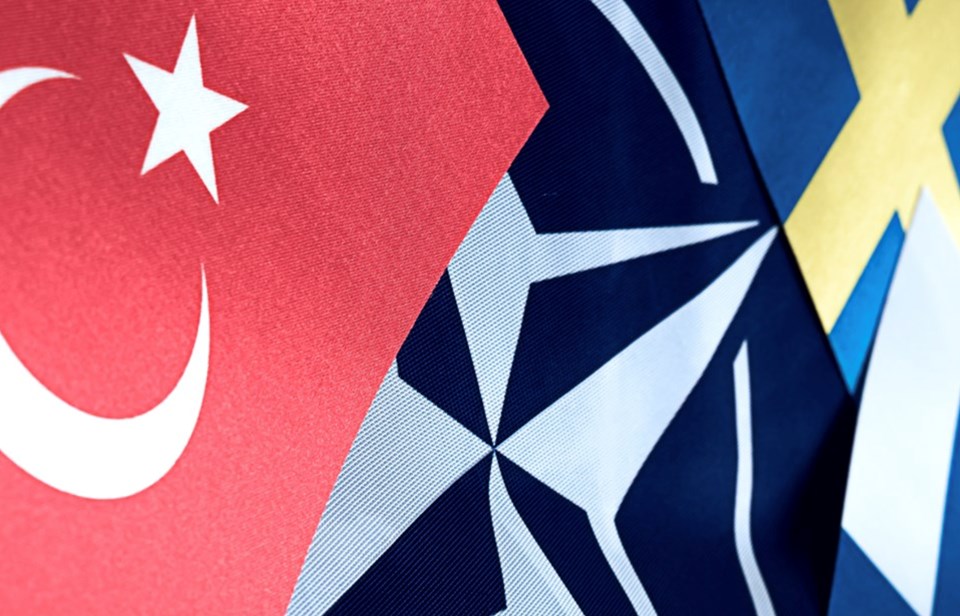
10.58867/IBIS9578/TQMM2590
In an ever-changing world marked by geopolitical shifts and evolving security threats, it is crucial to reassess and adapt the collective defense architecture that underpins international stability. Established more than 70 years ago, NATO has been a crucial element of global security and a demonstration of the effectiveness of collective defense. The expansion of NATO's reach has become a significant topic of debate as the world evolves.
The North Atlantic Treaty Organization (NATO) has effectively ensured the security of its member states through a collective defense framework, making it a successful alliance. The evolving global landscape, which includes emerging threats, changing power dynamics, and evolving security challenges, has led to a reassessment of NATO's role and scope. There are those who advocate for the acceptance of NATO's expansion as a means of strengthening security and fostering collaboration among nations with similar values. The argument posits that enlarging NATO's membership can function as a deterrent against acts of aggression, strengthen democratic principles, and promote a more stable global system.
This special issue, which we had the great pleasure of working together with NATO’s Public Diplomacy Divison, seeks to delve into the multifaceted dimensions of expanding NATO, exploring the challenges and opportunities that lie on the horizon. As we examine this critical issue, it is important to emphasize that the views expressed in these pages are diverse and reflect the complex and varied perspectives on NATO's expansion. Our authors, specialists from a wide-range of different fields, contributed their valuable opinions regarding this important discussion which has become further important since Russia’s aggression against Ukraine has escalated with simultaneously intensifying debates concerning the start of a new Cold-War in our time.
Romania's former Prime Minister, Petre Roman, emphasizes the significance of NATO's eastward expansion as a crucial geopolitical process. He highlights how this expansion allowed countries to prepare for potential Russian aggression while pursuing the path of successful democracy. Romania, having emerged from the oppressive communist regime of Ceausescu, eagerly sought NATO membership, and officially joined in 2004. Geographically positioned at the heart of NATO's objectives, Romania plays a central role in the defensive complex within the "post-Soviet space." With Poland guarding the Baltic Sea, Romania stands as a pivotal defender of the Black Sea region, where historical Russian imperial ambitions persist. Moreover, Romania's commitment to NATO is demonstrated through its active participation in Western missions and its role in safeguarding vital corridors, such as the precious grain corridor. This article sheds light on Romania's strong pro-Atlantic and pro-American sentiment, positioning the country as a model ally within the alliance.
Professor Richard Higgot and Professor Simon Reich critically examine the prevailing narratives surrounding the structure of the world order, ranging from bi-polarity and multi-polarity to predictions of the end of globalization or a "Cold War v. 2.0." They caution against the tendency of pundits to assert rather than reason these explanations, often seeking fleeting moments of fame. Instead, their paper takes a more modest approach, eschewing grand statements about world order and emphasizing the inherent uncertainty of the future. Their paper offers valuable insights into the nuanced dynamics of a fuzzy bifurcation, emphasizing that the behavior of different actors is influenced by a more fluid and less predictable global landscape. By exploring the implications for NATO, Higgot and Reich contribute to a deeper understanding of the challenges and opportunities that arise in an increasingly complex international environment.
Professor Roger E. Kanet undertakes a comprehensive examination of Vladimir Putin's commitment to rebuilding "Greater Russia" and its implications, particularly in the context of the invasion of Ukraine. Putin's vision revolves around re-establishing the former Soviet Union and extending Russian dominance beyond its borders, driven by a belief in the historical and cultural ties between Russians and Ukrainians. Professor Kanet argues that despite other influencing factors, the re-establishment of Moscow's influence and control over as much post-Soviet territory as possible, essentially recreating "Greater Russia," is of utmost importance. While NATO expansion may have been a contributing issue, the author contends that the dominance of Ukraine is a primary objective. Moreover, the successful domination of Ukraine could pave the way for future expansion into other former Soviet areas, such as the Baltics.
Professor Ryszard Zieba adopts an offensive realist perspective to examine the implications of NATO's post-Cold War enlargement. The article highlights that these implications unfold on multiple levels, encompassing various aspects of the international landscape. Through this lens, Professor Ryszard Zieba's article offers a comprehensive analysis of the implications of NATO's post-Cold War enlargement. By examining these implications on multiple levels, the article sheds light on the intricate dynamics and challenges that arise in the evolving international landscape. The insights presented contribute to a deeper understanding of the complex interactions between NATO, Russia, and other global actors, urging careful consideration of the consequences of NATO's expansion and its ongoing policy choices.
We encourage you to learn more about “Expanding NATO: What Challenges and Opportunities Wait Ahead?”. On behalf of Transatlantic Policy Quarterly, I would like to express my gratitude to all the contributors who committed a significant amount of effort and work. The TPQ team has had a great time putting together this special issue. An important acknowledgment goes to our partner for this special issue, NATO’s Public Diplomacy Division. Moreover, we are grateful for our Premium Cooparete Sponsor for this issue, Tüpraş. We also like to thank our other sponsors, Halifax, TEB, and Uluslararası İlişkiler Dergisi for their ongoing support.
Aybars Arda Kılıçer
Editor-in-Chief